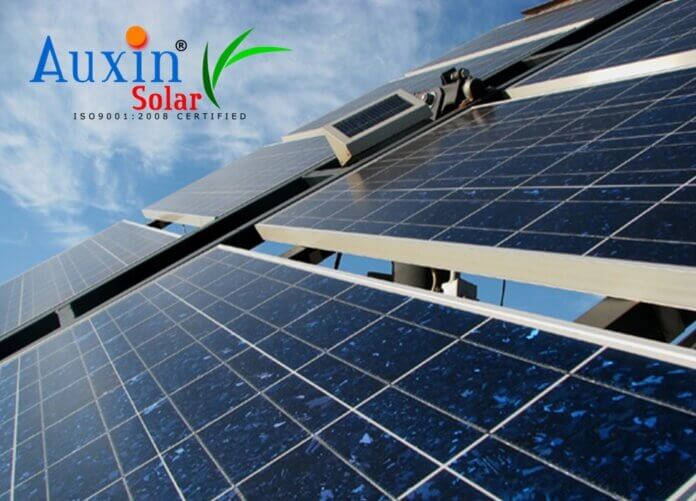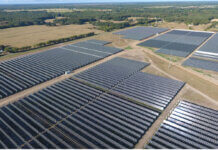U.S.-based solar photovoltaic module manufacturers Auxin Solar and Suniva Inc. have filed a petition with the U.S. International Trade Commission (ITC) to extend the Section 201 tariffs on imported crystalline silicon PV cells and modules beyond their February 2022 expiration.
The 18% tariffs, which the Trump administration enacted in 2018, were designed to protect American manufacturers from “a flood of aggressively priced imports that quickly captured market share,” according to Auxin Solar.
Suniva was the original complainant; its Georgia operations have been idle for more than three years. Auxin Solar manufactures solar products out of California.
“Extending this safeguard is essential for America to reclaim its lead in solar energy manufacturing and development, and it represents a critical step to achieve the broader goal of American renewable energy independence,” says Mamun Rashid, co-founder and CEO of Auxin Solar. “We believe the commission should recommend extending the safeguard remedy for another four years to strengthen the domestic solar industry.”
The vast majority of the solar industry, however, takes the opposite stance.
Following is a statement from John Smirnow, vice president of market strategy and general counsel at the Solar Energy Industries Association (SEIA) on the August 2, 2021 Section 201 petition:
“It is time to end the job-killing Section 201 solar tariffs,” says John Smirnow, vice president of market strategy and general counsel at the Solar Energy Industries Association (SEIA). “They are a multibillion-dollar drag on industry growth. And leading domestic panel manufacturers are thriving, both here in America and globally. If we hope to reach our ambitious climate goals, we must accelerate solar deployment, not hinder it with unnecessarily punitive trade measures.”
In lieu of tariffs, SEIA is advocating for a dense complement of long-term federal investments in solar via various policy moves that will “provide demand certainty, leverage private sector capital investments and provide ongoing production support as gaps are filled in the domestic solar supply chain.”
“We’ve also set a target of 50GW of solar manufacturing capacity by 2030,” Smirnow says. “That would go a long way toward creating a robust solar manufacturing supply chain, but we won’t get there with a simplistic and ineffective trade policy.”
For its part, Auxin Solar says it is “committed to re-shoring the solar supply chain.”
“[We] filed this petition in the hope that policymakers are committed to the promise of green energy independence and the good-paying manufacturing jobs that will result,” Rashid says.
The ITC is set to report its determination to the Biden administration in December, at which time the president can either extend the tariffs an additional four years or allow them to expire.




